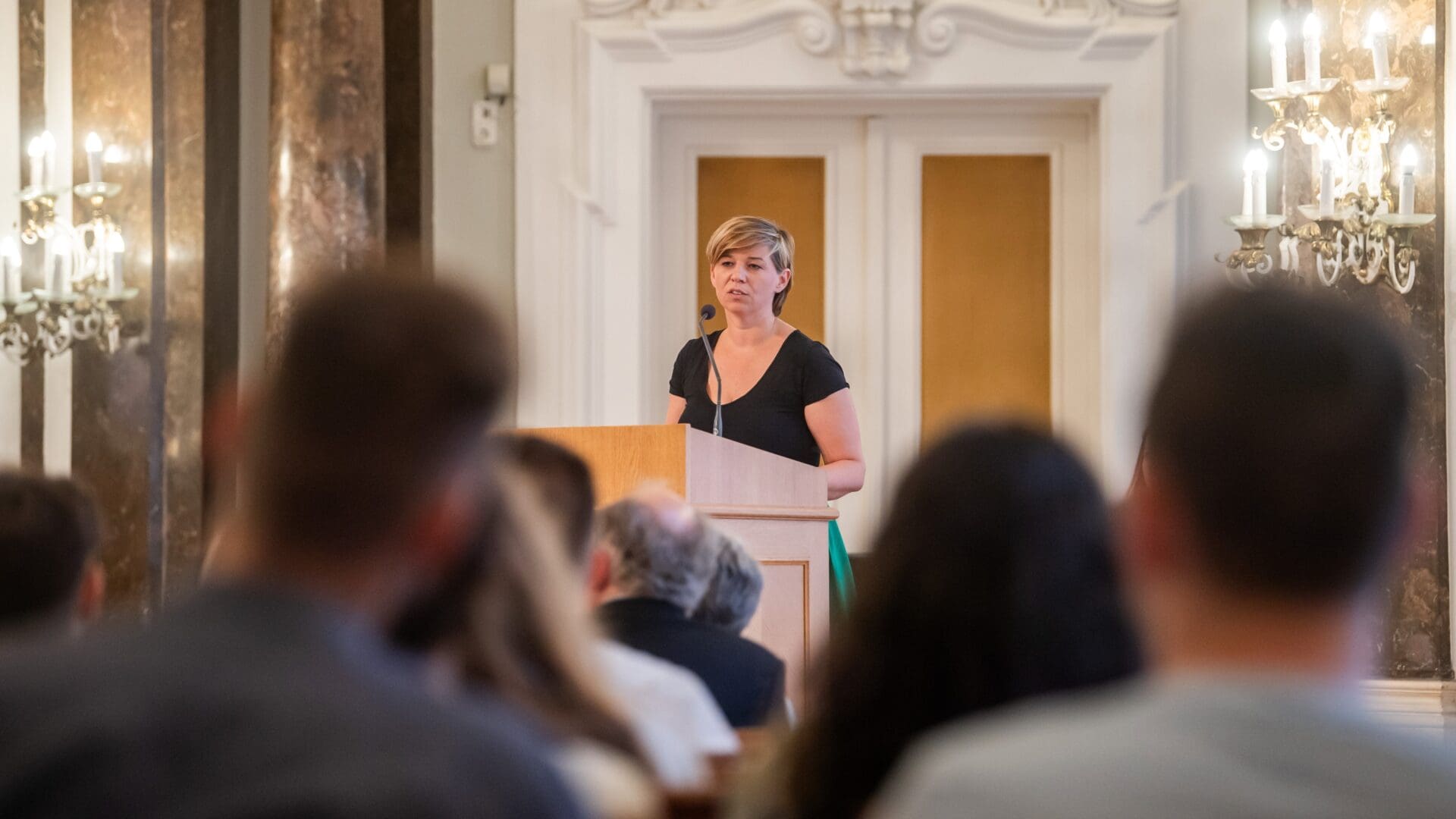The Hungarian higher education system is competitive, flexible, and autonomous, with operations that have become predictable and transparent since the model change, Veronika Varga-Bajusz, State Secretary for Higher Education, Vocational and Adult Education, and Youth at the Ministry of Culture and Innovation emphasized during a speech at the University of Pécs (PTE) on Sunday.
Speaking at the festive senate meeting marking the start of the academic year at the University of Pécs on the Day of Hungarian Higher Education, Varga-Bajusz noted that higher education serves students, families, teachers, the Hungarian economy, and the Hungarian nation—essentially, it is ‘for us, our present, and our future.’ For this reason, the Hungarian government offered a partnership when it embarked on the renewal of higher education at the universities’ initiative as part of a ‘competitiveness programme under which the renewed university structures could gain momentum,’ she highlighted. She stated that just a few years after the model change, universities are now led by leaders with active plans and dreams, surrounded by innovative, creative students and a thriving innovation ecosystem, with social trust in universities evident. As part of the successful competitiveness shift brought about by the model change, higher education institutions had become linked with economic and regional actors, their operations had been made more flexible, the financing of Hungarian higher education had been fundamentally altered, and a performance system had been introduced, she outlined. The State Secretary underlined that
the new Hungarian higher education system is competitive, flexible, autonomous, and operates in a predictable and transparent manner
while creating opportunities for progress in education, research, and management.
The achievements of Hungarian universities reinforce this progress, she added, noting that more students are now enrolled in technical, natural sciences, engineering, and IT programmes within these institutions than before. Additionally, dropout rates have improved, and the number of international publications has also increased. Varga-Bajusz pointed out that while efforts are being made to undermine our universities internationally, the number of Hungarian universities ranked in the top 5 per cent globally has risen from seven institutions five years ago to nine three years ago, and to twelve this year. Furthermore, three universities are now in the top 2 per cent, and one is among the top 1 per cent. This progress is supported by programmes such as the Pannonia Programme, launched with a budget of 10 billion forints, which enables Hungarian students to participate in courses at leading universities around the world. Among research initiatives, Varga-Bajusz highlighted that the Hungarian government established a self-financing fund for Horizon Europe projects in 2024 and launched the HU-rizont programme with a budget of 8 billion forints. The programme aims to ensure that model-changing universities collaborate on research projects not only with Europe’s best but with the world’s leading universities.
The State Secretary also mentioned that many of Hungary’s sports successes are linked to higher education students. For example, of the 19 medals won by the Hungarian team at the Paris Olympic Games, students contributed to the acquisition of 16, and every second team member was a university student. To support these successes, the government is providing billions of forints in funding for university sports, she declared. Regarding the University of Pécs, Varga-Bajusz referred to the institution, founded in 1367, as a ‘national treasure’, an academic centre upon which the region and its economic and social actors also rely.
Rector of the university Attila Miseta regarded it as a significant achievement that roughly the same number of students applied to PTE’s programmes this year as last year and that the number of those admitted is also similar. Speaking about the challenges faced by higher education, he suggested that artificial intelligence is likely to bring about changes in the world comparable to the industrial revolution, which will not spare university life either.
Mayor of the Baranya County seat Attila Péterffy highlighted that in recent years, the city and the university have strengthened their relationship in economic, cultural, and sustainability matters. He emphasized that the city recently offered service apartments to student teachers and newly graduated teachers, and since last year, scheduled flights have been operating between Pécs and Munich to serve foreign students.
During the academic year opening ceremony, the university’s students and faculty members who had recently received state or municipal awards were honoured, professors were inaugurated, and the university’s most prestigious awards were presented. Academician Péter Németh received the Pro Universitate Quinqueecclesiensi award, while Professor Emeritus Imre Nagy was awarded the Nagy Lajos Király Prize.
Related articles:







